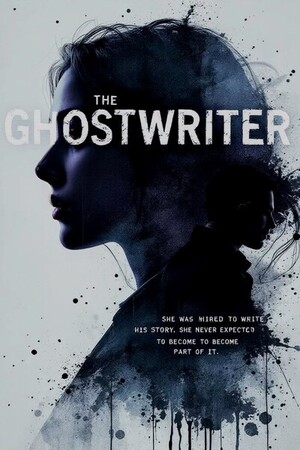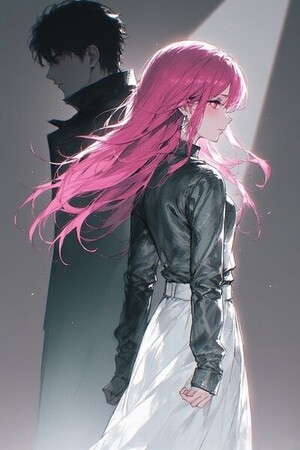Chapter 1:
THE EMAIL
THE GHOSTWRITER
The email arrived at 2:17 a.m, tucked between an overdue electricity bill and a coupon for discounted dental floss. That’s when I saw it; small and easy to ignore. In fact I almost did. My laptop was sat on the table I had balanced on a stack of library books I kept forgetting to return. The light from the screen painted the room the color of insomnia: blue and bone-white. My corner of Brooklyn sleep I didn’t even bother pretending, neither did my apartment. The air smelled like paper, burnt coffee, and failure.
CONFIDENTIAL GHOSTWRITING OPPORTUNITY – URGENT.
I stared at the subject line, chewing the inside of my cheek like I usually would do under extreme fatigue and stress.
The sender was Elliot Wilson, Executive Communications Liaison which, translated from corporate, meant professional liar. He wanted to hire me for a memoir. No client name, no outline, just promises of “substantial pay” and “total discretion.” Which usually means: We’ll own you, but politely.
I almost deleted it. These things always came dressed in vague language and impossible deadlines. But the word substantial made my finger hesitate above the trash icon.
Substantial could mean rent.
Substantial could mean heat.
Somewhere under the pile of unopened mail and half-finished manuscripts was a framed diploma. Ava Alessi, M.F.A. Creative Writing, Columbia University. I hadn’t hung it since someone told me ghostwriting was “selling out.” I told them that sounded like a dream I’d love to have something to sell. Right now, l had nothing to my name.
At twenty-six, I’d written six books and owned none of them. My name lived in the margins invisible ink under someone else’s glory. Ghostwriting just feels like giving what’s left of your self respect and dignity.
Maybe I never had both to begin with…
For a second, I thought about that night the one when the phone rang and everything I’d built cracked down the middle. I was twenty-three, still stupid enough to believe truth could outrun money. The voice on the other end belonged to my publisher, polite in that way people are when they’re ruining your life. “We’re withdrawing,” he said. “Too risky.” Then another call came it was my mother; crying, shouting, which wasn’t unusual for her to do. She kept asking me how I could drag her name through my “fiction.” By morning, I’d lost everything I thought I believed in but mostly the illusion of my so called relationship with my mother. That was the night I stopped writing for myself and started ghosting for everyone else.
My last client still owed me half a payment and a nervous breakdown. I’d promised myself I’d stop taking jobs wrapped in nondisclosure agreements, but rent doesn’t honor principles. I leaned back on the couch its fabric tired and cold. A stack of manuscripts leaned against the wall, each one with someone else’s name on the cover and mine haunting the footnotes.
So when a second email arrived three days later shorter, sharper, promising five figures and a plane ticket I said yes before I could talk myself out of it. The contract came that night, glossy and cold. I skimmed through the clauses about confidentiality and intellectual property. But then I saw the name.
Julian Vale.
My stomach dropped.
The Julian Vale.
The rock god turned ghost.
The brother of the one who…
I slammed the laptop shut before finishing the thought. The sound echoed off the walls. Everyone knew the headlines. The overdose. The cancelled tour. The silence that followed like a curse. Julian Vale had vanished from the world five years ago, leaving behind a crater of speculation and a million unsold concert tickets.
And now, they wanted me to write his story. I told myself I didn’t care. I needed the job, not the gossip. Not the drama. Definitely not the ghosts.
But that night, curiosity won. It always does.
I opened the laptop again. I typed his name into the search bar and the internet opened its mouth. Thousands of photos spilled across the screen; Julian with a cigarette dangling from his lips. Julian half-smiling beside his brother, Levi Vale, their guitars hanging low almost touching the floor, sweat and starlight dripping off them. Julian at the funeral in a suit that didn’t seem to fit him.
Then came the darker corners of the web; the articles nobody reads anymore but everyone remembers.
LEVI VALE DEAD AT 29. OVERDOSE OR SOMETHING MORE? BEHIND THE MUSIC: THE VALES’ FINAL NIGHT.
There were mentions of pills, whispers of abuse, and rumors about the night that split them apart. Old interviews painted Levi as brilliant “a creative genius with self-destructive habits.” Fans kept posting old concert videos of him slurring jokes between songs, mascara running down his face, drunk on something probably heavier than whiskey.
The tabloids were brutal. Cruel. I’d almost forgotten how good they are at tearing people apart for money.
Violence. Addiction. Manipulation.
One headline read:
THE BEAUTIFUL BROTHERS TURNED BAD.
The further I scrolled, the worse it got. Allegations. Secrets. Betrayals. Every article trying to find someone to blame and settling on the one who survived.
There were photos of Julian after his brother’s death, and every one of them became unforgettable in the public’s memory. In one, he was drunk outside a bar in Paris. In another, barefoot on a beach at dawn, holding onto women no one ever identified. But the picture that stuck; the one they printed on every front page, showed him on a bench, crying. His hair hung over his face, but he wasn’t hiding. He knew they were there. The paparazzi stood around him like vultures, waiting for him to break a little more. In every photo his eyes looked the same empty, detached, like he’d already checked out of his own life.
His emptiness called to mine, like two ghosts recognizing each other in the dark. For a second I felt absurdly seen, which is ridiculous when you’re staring at pixels. I shut the tab, but the feeling was still there buried somewhere deep. I leaned back, pretending the chill that ran through me was just the draft from the window. Get a grip, Ava, I told myself. You can’t catch feelings from a Google image.
I clicked through, one tab after another, until they all blurred together the fame, the fall, the faces. Somewhere between a gossip column and an autopsy, I realized my hands were shaking. I caught my reflection in the laptop screen. I looked almost as bad as him; puffy eyes, pale skin, dark circles no amount of concealer could erase.
I shut the laptop, and the room dimmed back into itself. Then, quieter, almost like a prayer I whispered the thought that had been chasing me all night.
Don’t fall in love with your subject.
I laughed, but it didn’t sound convincing.
People like me don’t fall in love. We just write about it




Please sign in to leave a comment.